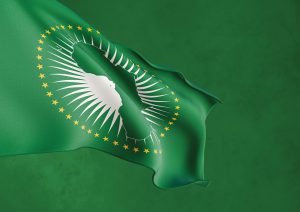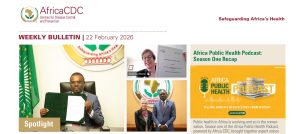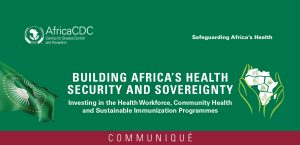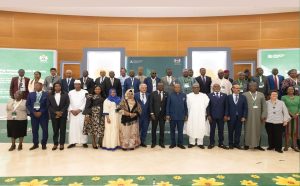Africa and Eastern Mediterranean regions’ top health leaders have joined forces to provide resources and expertise to improve health emergency response.
The Africa Centres for Disease Control and Prevention (Africa CDC) and the World Health Organization (WHO), together with the Kingdom of Morocco, launched the Health Emergency Leaders Network in Rabat, Morocco, in September.
The Network brings together, for the first time, health leaders from the African and Eastern Mediterranean regions to forge stronger regional defences that also reinforce global health security.
“No nation can protect itself alone. We must come together for stronger emergency preparedness, readiness, and response. Improving efficiency and effectiveness by working across national and regional borders through connected leadership is especially important in this time of declining resources and growing needs,” said Dr Tedros Adhanom Ghebreyesus, WHO Director-General.
The African and Eastern Mediterranean regions face some of the world’s highest burdens of humanitarian and health emergencies. Twenty-seven countries — almost half of all countries across both regions — are classified as fragile, conflict-affected, and vulnerable by the World Bank. Cholera is the most urgent and widespread threat across both regions. Mpox is also being reported in several countries, while the re-emergence of Ebola in Africa has highlighted the urgency of better cross-border collaboration.
“Africa CDC’s journey since 2017 has been rooted in the vision of a New Public Health Order for Africa, with leadership and partnerships at its core,” said Dr Raji Tajudeen, Acting Deputy Director-General, Africa CDC.
“Through initiatives such as the Joint Emergency Preparedness and Response Action Plan with WHO, we have shown the power of connected action in responding to outbreaks such as mpox. Beyond systems, the real difference in any emergency is made by people — and by leaders who act together in solidarity to protect communities,” said Dr Tajudeen.
The meeting — ‘Connecting Health Emergency Leaders to Advance Health Security’ — brought together deputy ministers and senior health emergency leaders from Ministries of Health in Africa and the Eastern Mediterranean regions, alongside development partners, donors, and international institutions.
Over three days, participants defined the Network’s vision, strategic value, priorities, and operational plans. The meeting concluded with the adoption of the Rabat Statement of Intent, a collective bi-regional commitment to build trust, foster solidarity, and accelerate collaboration across borders.
“When crises transcend borders, so must our response — seamlessly, efficiently, and with one voice. The Network’s value is clear: trust, operational alignment with global efforts, and a mechanism to share lessons and advance cross-regional opportunities before emergencies erupt. But its success will depend on the trust built among Member States. It must be country-driven, sustained, and rooted in shared responsibility,” said Dr Hanan Balkhy, WHO Regional Director for the Eastern Mediterranean.
Dr Mohamed Yakub Janabi, WHO Regional Director for Africa, underlined the urgency of the Network. “Africa and the Eastern Mediterranean face some of the toughest emergencies in the world. By bringing our leaders together, we are creating the relationships and readiness spirit that will make responses faster, stronger, and ultimately lifesaving.”
“The greatest shield against future emergencies is not walls or borders, but the trust we build across our leaders and countries. The North Africa region stands as the vital link between Africa and the Eastern Mediterranean, where our shared vulnerabilities demand shared strength,” said Dr Wessam Mankoula, Regional Director, North Africa Regional Coordinating Centre, Africa CDC.
Representing Morocco, H.E. Amine Tahraoui, Minister of Health and Social Protection, said that under the leadership of His Majesty King Mohammed VI, Morocco has turned major health crises into powerful lessons in resilience and drivers of solidarity.
“COVID-19 and other recent global crises have shown the world that no nation can stand alone, and that lasting health security can only be achieved through shared responsibility, solidarity, and cooperation. This meeting creates the momentum to move beyond short-term and crisis-driven responses to advance sustainable preparedness and to build robust health systems capable of protecting future generations,” he said.
The Health Emergency Leaders Network is a cornerstone of a regional flagship initiative to strengthen the emergency health workforce for the Eastern Mediterranean region and beyond. It also forms a central part of the Global Health Emergency Corps (GHEC), established in May 2023 with support from the Bill & Melinda Gates Foundation in the wake of the COVID-19 pandemic. By linking Africa and the Eastern Mediterranean more closely with each other and with global mechanisms, the Network will ensure that countries are better prepared, better connected, and better aligned with international efforts to strengthen health security worldwide.







